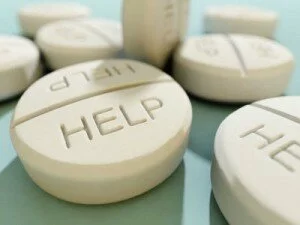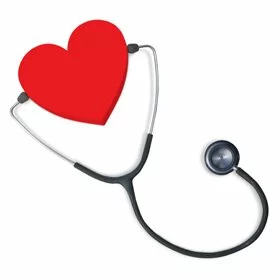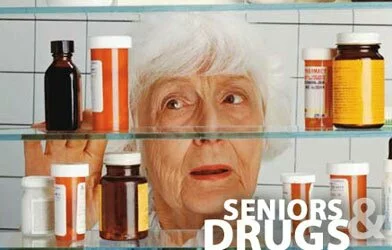When taking any type of medication, it is important to pay careful attention to its potential for drug interactions. Today, many people take a combination of prescription and over-the-counter medications to treat a variety of illnesses. While these medications are helpful for treating many different symptoms, it is essential to stay on guard for potential problems such as an allergic reaction or dangerous drug interaction that can lead to life-threatening symptoms in the patients who take the wrong medications together. Here, are the best tips for those who need to know how to check prescription drug interactions.
Gather All Medications
The first step to knowing how to check prescription drug interactions is to gather all of the medications that a person takes in one place. This should include prescription medications, over-the-counter medications and any herbal supplements or vitamins that a person takes on a regular basis. When gathering medications, a person should also note any teas or other types of foods that contain a large amount of herbs because these can also cause a potential drug interaction.
Make a List
Once all of the medications have been gathered, it will be time to make a list of every medication and supplement that a person takes to treat a health condition. When making this list, it is important to note both the brand and generic name of the medication. If a person is not sure of the medication’s name, then they should consult their pharmacist to find out for sure. This important step is very helpful for knowing how to check prescription drug interactions.
Do an Online Search
After making a list of all known medications that a person takes, then it will be time to begin looking up more information regarding how to check prescription drug interactions. This can be done by entering the name of the medications into a search engine designed for helping people to recognize potential drug interactions. Generally, there will be a simple set of instructions for entering the medication names. After the names have been entered, a printable result list will then be generated.
Read the Results
After performing an online search, a person will be given a list of potential interactions. Reading and understanding this list is essential for preventing potentially dangerous drug interactions. Although most of this information will be self-explanatory, it is important for a person to note that any confusing information should always be directed to a person’s physician or pharmacist. This is especially true for anyone who discovers that the medications they take on a regular basis may have a dangerous interaction.
Talk to a Physician
When researching drug interactions, a person may discover that they are taking a dangerous combination of medications. In this case, they will need to contact their physician before making any changes to their dosage or medication schedule. This way, they can be certain that their health will be safeguarded during the transition.
Knowing how to check prescription drug interactions is essential for keeping a person safe and healthy. Many times, a person may unknowingly be taking a dangerous combination of medications that could have a negative interaction. By gathering a list of all of the medications that a person takes, including vitamins and herbal supplements, a person will be able to look up information to ensure that the medications they take will not have a dangerous interaction.
About this Angie’s List Expert: Cary Byrd is the president and founder of eDrugSearch.com. Based in San Antonio, eDrugSearch.com is a free cost comparison engine that helps consumers get safe access to affordable medications and advocates licensed online pharmacies as a widely accepted alternative.
According to a report from Reuters, taking ginkgo biloba, St. John’s wort and several other widely used herbal medications may impede the potency of prescription drugs, making them more or less effective.
Experts at the Journal of the American College of Cardiology found that mixing herbs and drugs also may cause serious heart rhythm problems and bleeding.
“We can see the effect of some of these herb-drug interactions — some of which can be life-threatening — on tests for blood clotting, liver enzymes and, with some medications, on electrocardiogram,” Dr. Arshad Jahangir of the Mayo Clinic in Arizona said in a telephone interview.
Many patients fail to disclose their use of herbal remedies so healthcare providers should be more probing, Jahangir said in a telephone interview.
“We need to be actively ask about alternative or complementary medicine patients may be seeking on their own to assess these potential interactions or side affects,” said Jahangir, a cardiologist.
“They don’t even consider that herbs could have a negative effect,” he said. “Their impression is that ‘natural’ is safe,”
So whether you use an ACE inhibitor like Vasotec or Monopril, alpha agonists like Zanaflex, or angiotensin II receptor blockers like Avapro or Atacand, it is a good idea to check with you doctor and make sure there won’t be an interaction with any of the additional supplements you may be taking.
Remember, whenever dealing with potential interactions between medicines and supplements, it is always better to error on the side of caution.
Better safe than sorry.
Researchers from the University of Chicago Medical Center report in the Dec. 24/31, 2008 issue of JAMA that more than half of older Americans take five or more prescription medications — and that an alarming number of these seniors risk harmful drug interactions.
We’ve warned of drug interactions here before — and have recommended sites like DoubleCheckMD.com to make sure your drug regimen is safe. This latest study reinforces the importance of such precautions.
According to the researchers, at least one in 25 older adults take multiple drugs in combinations that can produce a harmful drug interaction. That’s 2.2 million seniors in the United States.
Nearly half of the drug interactions identified in the study put seniors at risk for bleeding problems. One of the most common was taking warfarin, a medication to prevent blood clots, along with an over-the-counter drug such as aspirin, which also interferes with clotting.
Dr. Nancy Snyderman of the Today Show reported this morning on the growing number of Americans who use prescription drugs, and in many cases several prescription drugs, to treat chronic illnesses.
One of the issues the report raises is the importance of being aware of potential drug interactions; be sure to talk with your doctor and pharmacist, and to use online tools like DoubleCheckMD, to ensure that your drug regimen is safe.
Unfortunately, when we are contemplating taking a new prescription medication, too many of us don’t think about possible harmful interactions with the other drugs we’re taking. We treat the risk like all the fast-paced warnings at the end of pharmaceutical commercials — we ignore them.
That’s dangerous — and in a world where many of us don’t have long-term relationships with a single doctor or pharmacy, it’s becoming all too common for us to fall into drug regimens where the individual medications either counter each other’s effects or create unexpected, and sometimes even deadly, side effects.
That’s why Health 2.0 sites like DoubleCheckMD and PharmaSurveyor are so valuable; they allow you to enter medications and research possible interactions yourself.
If you don’t want to take the do-it-yourself route, however, the Houston Chronicle recommends the following precautions:
Heidi Bragg, a pharmacist and University of Houston School of Pharmacy professor …recommends two actions to help take control of your own health: keep a list of every prescription, supplement and over-the-counter medicine you take, and use one pharmacy to fill all your prescriptions.
The pharmacy professor said drug interactions are especially significant for elderly patients who often take more medicines.
Bragg said she met with one woman who took four synthetic thyroid medications at one time all prescribed by different doctors, all different dosages and all filled at different pharmacies.
“She could have died,” Bragg said.
Pharmaceutical companies talk fast in commercials when they warn about drug interactions. But for your health’s sake, it’s in your interest to take your time and make sure your regimen is both safe and effective.
-
 Subscribe in a reader
Subscribe in a reader -
Search Blog Posts
-
Ads

-
-
How to Safely Buy Prescription Drugs Online from Cary Byrd on Vimeo.
-
Medi-Share: Christian Health Insurance Alternative

-
Archives
-
Our Healthcare100 Ranking
-
Tags
adverse drug reactions big pharma buy drugs online Canadian drugs canadian pharmacies canadian pharmacy compare drug prices consumer reports divine healing Drug costs Drug interactions Drug Prices drug safety tips drug savings tips dtc advertising eDrugSearch.com FDA healing scriptures Health 2.0 healthcare100 Healthcare blogs high drug costs high drug prices Jehova Rophe Jesus Christ licensed Canadian pharmacies licensed online pharmacies Lipitor mail order pharmacies medicare coverage gap medicare doughnut hole Medi Share miracles online pharmacies online pharmacy safety personal drug importation pharmacy spam prescription drug abuse Prescription drugs reimportation rogue online pharmacies save money on prescriptions The Great Physician The Lord our Healer Wal-Mart $4 generic drug program



